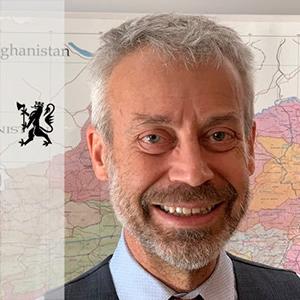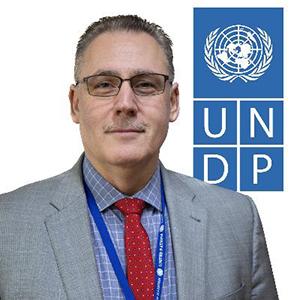Four decades of war and conflict in Afghanistan have hampered social and economic development in the country and resulted in a much slower rate of economic growth in the last decade than could have been achieved if the conflict had been successfully avoided. However, although there has been significant progress in access to education, health and the building of much-needed infrastructure, there is still a long road ahead to build a prosperous and peaceful Afghanistan.
To achieve sustainable peace and development, the new Afghanistan National Peace and Development Framework (ANPDF-II), which will be officially launched during the Geneva conference, outlines the most critical areas of intervention over the next five years. These interventions aim to build peace, strong and resilient institutions and functioning markets to stimulate sustained and long-term economic growth and create decent jobs for all citizens of Afghanistan.
With support from United Nations, the Government of Afghanistan has also developed a set of national SDGs known as the Afghan Sustainable Development Goals (A-SDGs) which include the most relevant global SDG goals, targets and indicators for the country. These have already been aligned with ANPDF II and are grounded in the set of 15 revitalized and new proposed National Priority Programs (NPPs). UNDP has recently initiated the technical process of estimating the costs of achieving the A-SDG targets in Afghanistan and is conducting a diagnosis of the wider financing landscape in Afghanistan to attract the additional resources needed to achieve SDGs by 2030. UNDP has also developed a macroeconomic framework to build a base of evidence for properly integrating the SDGs into the national planning system and for enabling evidence-informed policy design and implementation.
Although the A-SDGs and the ANPDF-II both aim to support sustainable development in Afghanistan, they lack innovative and integrated tools and approaches to planning, monitoring and reporting. UNDP’s main role in providing support for SDG integration will be to work with the Government of Afghanistan to develop evidence-based macroeconomic models. The aim is to achieve a balanced approach to the economic, social and environmental dimensions of sustainability in national plans and policies.
The framework of A-SDG targets and indicators can be used to support national planning, monitoring and reporting on policies, which is dependent on the availability of reliable data for these targets and indicators. To assess the A-SDG targets and indicators, the official statistics being collected by the National Statistics and Information Authority of Afghanistan will need to consist of administrative data for statistics and non-traditional methods and sources of data. UNDP has already provided advice to the Government of Afghanistan on potential new sources of data and has been carrying out trials of new methods and technologies that could be used to develop a robust and integrated Monitoring and Reporting System for the A-SDGs.
An online dashboard, like the SDG calculator proposed by UNDP can be used to support decision-making and advocacy on the SDGs, especially when the available data are disaggregated by geography, gender, age and other criteria. According to the Afghanistan Partnership Framework (APF) which is to be endorsed in the Geneva Conference on 24 November, all indicators in the APF and ANPDF II monitoring framework should, as a first step, be sex-disaggregated, where possible.
The effective implementation of both the ANPDF-II and the A-SDGs will require the collective efforts of all actors involved, including the Government, the international community, civil society organizations and the private sector. Such partnerships are needed to support SDG integration to achieve peace, change people’s attitudes, tackle the country’s economic challenges, deliver the public services needed, make institutions more resilient, and provide practical solutions and programs to improve education and healthcare services.
The UN system’s future support to Afghanistan will rely less on delivering traditional projects and more on providing advice guided by the need to ensure coherence, and complementarity between development and humanitarian activities. This also includes support for expanding cooperation and coordination within the donor community to lay the groundwork for integrating and achieving the SDGs in Afghanistan.








GET IN TOUCH
NEWSLETTER
SUGGEST A STORY
PAJHWOK MOBILE APP